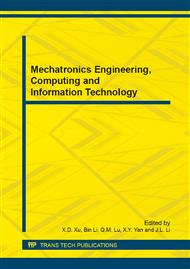p.3965
p.3972
p.3976
p.3980
p.3984
p.3988
p.3995
p.4001
p.4005
Optimization of Reactive Power Based on Dynamic Learning Factor Multi-Objective Particle Swarm Algorithm
Abstract:
. Particle swarm optimization algorithm has the defects of easy to fall into local optimum and low convergence accuracy used in reactive power optimization. To solve the problems, this paper proposed an improved particle swarm optimization algorithm based on dynamic learning factors. The two accelerations are changed with searching stage, so as to enhance the early globle search ability and the late local search ability, then to avoid local optimum; minimum particle angle method and crowded distance method are uesd to determine the global extremum in instalments, so as to improve the convergence speed and accuracy of multi-objective pareto solutions. Take the IEEE 30 bus system IEEE 118 bus system as example, the proposed method is compared with adaptive chaos particle swarm optimization (ACPSO) and NSGA-II, simulation results show that the method put forward in this paper has better convergence accuracy.
Info:
Periodical:
Pages:
3984-3987
Citation:
Online since:
May 2014
Price:
Сopyright:
© 2014 Trans Tech Publications Ltd. All Rights Reserved
Share:
Citation:


